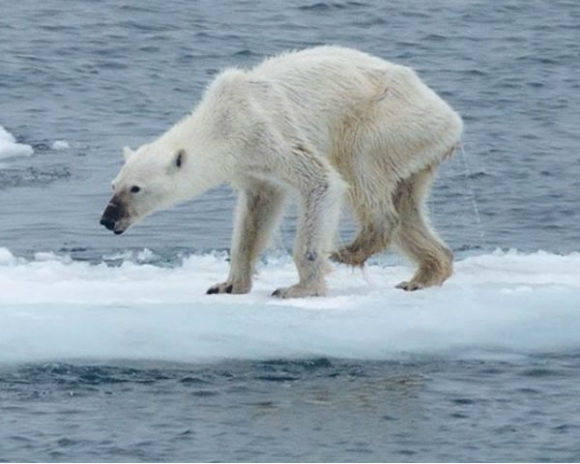How does life arise from inanimate matter? How did existence arise out of nothing? How does sentience arise from insentience?
It seems impossible that the glory we experience as being alive could be the result of nothing more than arbitrary, intrinsically purposeless forces tossing around dead stuff.
And yet we now know with near-certainty that this is indeed the case. This "aliveness" that we want to ascribe to ourselves or other parts of the universe is just a trick of the brain; probably a random adaptation that happened to avert us from some evolutionary cul-de-sac. There is nothing alive about the universe other than this illusion that inert matter is fooling itself with.
I suspect that part of you doesn't quite believe this party line. There's probably also a competing instinct in you that thinks that that first part is hopelessly naive. It's more courageous and honest to just face the facts with, no matter how bleak they may seem.
I think there are approximately three ways to proceed from such a juncture.
One is to take all the data and interpretations at face value. From this perspective, the universe (and therefore the Earth) is intrinsically lifeless, and so we might as well force nature into a shape that is convenient for us during our short, pointless stay. That is what is happening today. While we might temporarily slow down our march to extinction, if we deep down believe that there's no such thing as life (not really, anyway), our attempts to salvage it will always be half-hearted.


The second approach is to realize the tragedy of the first, and to brainwash ourselves into believing that there must be something miraculous about life. Religions and spirituality sometimes do a good job of this. Unfortunately this approach also fails, because the rational mind is tugging in a different direction. There just isn't enough evidence.
The third approach is to notice something we've been overlooking. In order to see it, the mind needs to be awfully quiet. So quiet that it becomes possible to notice details that lie hidden below the layer of our metaphysical assumptions.
Our assumptions about the nature of reality -- about the inherent and independent existence of time, space, and matter -- operate at such a deep level in our minds that we likely never notice them, let alone experience what lies underneath them. And in an amazing feat of circular reasoning, we convince ourselves that it's pointless to find our way down there: after all, whatever we find couldn't be anything but a trick of a physical brain.
But actually nothing could be less pointless than going down there.
Pause for a moment and marvel at the experience of being alive. Don't think about being alive or how great it is; try to experience the glory as directly and fully as you can. Let it overwhelm you.
Now consider what happens when we try to answer questions about "life." First we attempt to define it. Here's what the dictionary tells us:
So what happens when you delve underneath your metaphysics? You finally stop trying to frame the fundamental question of existence in terms of answers you're already unreasonably certain about, and rediscover the meaning of "life."
Before you can discover "the meaning of life" you must discover the meaning of "life." In that stunning moment where you rediscover life, it may occur to you that you haven't really been living most of the time. A damn shame, that.
At the same time, you may find that something fascinating happens to your question about how life could come from non-life. But I wouldn't spoil the surprise for you even if I could.
Instead, I would simply like to offer this possibility: it's time to stop bouncing between the first two approaches, and find our way toward the third. It's possible that the fate of our species depends on it, but surprisingly, that's not even the most compelling reason to pursue it.
It seems impossible that the glory we experience as being alive could be the result of nothing more than arbitrary, intrinsically purposeless forces tossing around dead stuff.
And yet we now know with near-certainty that this is indeed the case. This "aliveness" that we want to ascribe to ourselves or other parts of the universe is just a trick of the brain; probably a random adaptation that happened to avert us from some evolutionary cul-de-sac. There is nothing alive about the universe other than this illusion that inert matter is fooling itself with.
I suspect that part of you doesn't quite believe this party line. There's probably also a competing instinct in you that thinks that that first part is hopelessly naive. It's more courageous and honest to just face the facts with, no matter how bleak they may seem.
I think there are approximately three ways to proceed from such a juncture.
One is to take all the data and interpretations at face value. From this perspective, the universe (and therefore the Earth) is intrinsically lifeless, and so we might as well force nature into a shape that is convenient for us during our short, pointless stay. That is what is happening today. While we might temporarily slow down our march to extinction, if we deep down believe that there's no such thing as life (not really, anyway), our attempts to salvage it will always be half-hearted.
The second approach is to realize the tragedy of the first, and to brainwash ourselves into believing that there must be something miraculous about life. Religions and spirituality sometimes do a good job of this. Unfortunately this approach also fails, because the rational mind is tugging in a different direction. There just isn't enough evidence.
The third approach is to notice something we've been overlooking. In order to see it, the mind needs to be awfully quiet. So quiet that it becomes possible to notice details that lie hidden below the layer of our metaphysical assumptions.
Our assumptions about the nature of reality -- about the inherent and independent existence of time, space, and matter -- operate at such a deep level in our minds that we likely never notice them, let alone experience what lies underneath them. And in an amazing feat of circular reasoning, we convince ourselves that it's pointless to find our way down there: after all, whatever we find couldn't be anything but a trick of a physical brain.
But actually nothing could be less pointless than going down there.
Pause for a moment and marvel at the experience of being alive. Don't think about being alive or how great it is; try to experience the glory as directly and fully as you can. Let it overwhelm you.
Now consider what happens when we try to answer questions about "life." First we attempt to define it. Here's what the dictionary tells us:
Life (n): the condition that distinguishes animals and plants from inorganic matter, including the capacity for growth, reproduction, functional activity, and continual change preceding death.Imagine being innocent enough to ask a smart adult wow, how do you explain life? and getting an answer about the capacity for growth, reproduction, and functional activity. The answers may be fascinating enough to make you forget that it's not at all what you were really asking about. After a few of these sleights of hand, maybe you forget your original question entirely.
So what happens when you delve underneath your metaphysics? You finally stop trying to frame the fundamental question of existence in terms of answers you're already unreasonably certain about, and rediscover the meaning of "life."
Before you can discover "the meaning of life" you must discover the meaning of "life." In that stunning moment where you rediscover life, it may occur to you that you haven't really been living most of the time. A damn shame, that.
At the same time, you may find that something fascinating happens to your question about how life could come from non-life. But I wouldn't spoil the surprise for you even if I could.
Instead, I would simply like to offer this possibility: it's time to stop bouncing between the first two approaches, and find our way toward the third. It's possible that the fate of our species depends on it, but surprisingly, that's not even the most compelling reason to pursue it.
No comments:
Post a Comment